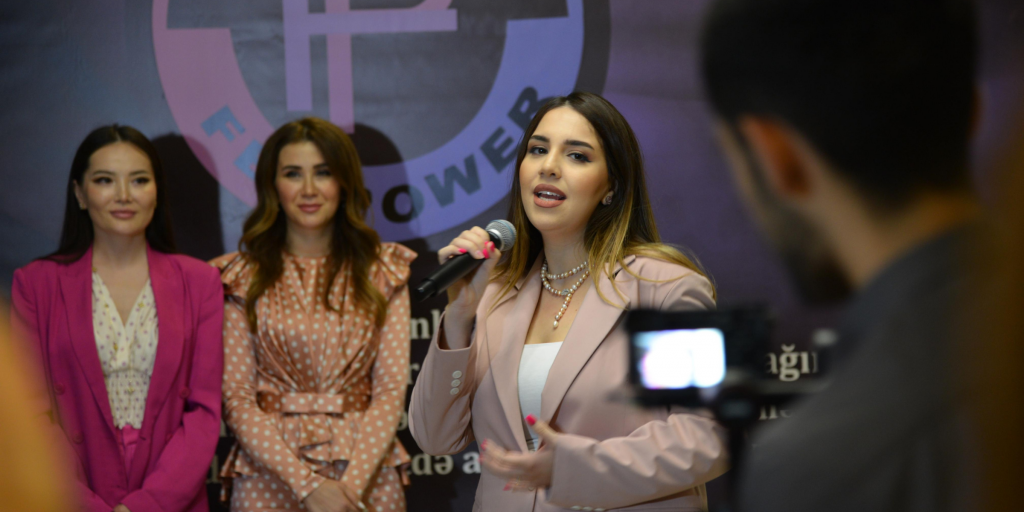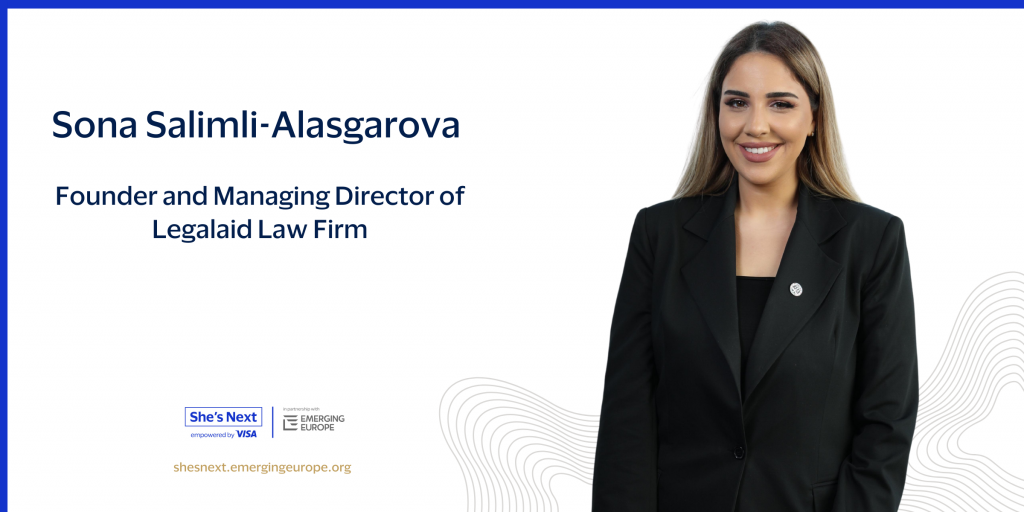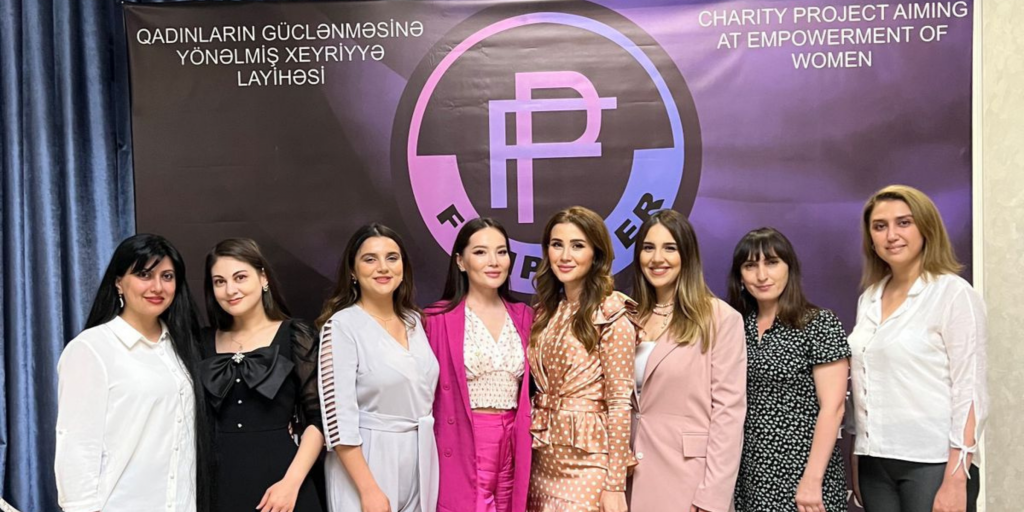
Breaking barriers: The journey of a lawyer-turned-entrepreneur revolutionising Azerbaijan’s legal scene
Amidst Azerbaijan’s evolving societal norms, Sona Salimli-Alasgarova emerges as a beacon of change, transforming the legal field with her innovative venture, Legalaid, and advocating for gender equality through the FemPower project.
In the heart of Azerbaijan, a pioneering spirit emerges through the story of a lawyer turned entrepreneur who is reshaping the legal landscape while championing gender equality.
Sona Salimli-Alasgarova’s journey began with a defiance of familial traditions; in a lineage where men pursued law and women medicine, she chose the path of law, inspired by the legacy of her prosecutor grandfather and father.
“This decision was fuelled by a desire to make a tangible impact on society and to challenge the gender norms in the country,” says Salimli-Alasgarova.
Her venture, Legalaid, stemmed from a fusion of law and technology, aimed at democratising legal services access amidst the Covid-19 pandemic.
“The conception of Legalaid was a natural progression of my passion for law and technology,” she explains.
“I had been running a Facebook group for more than seven years, which amassed over 18,000 users, providing free initial legal aid. In 2020, my husband, with his extensive background in IT, computer science, engineering, and AI, joined forces with me. Together, we combined our expertise in law and technology to develop the Legalaid mobile app, aiming to revolutionise how legal services are accessed in Azerbaijan, especially during the trying times of the Covid-19 pandemic. The app was designed to democratise access to legal services, making it easier for citizens to get the help they needed, when they needed it.”

Salimli-Alasgarova is also keen to point out the impact of the FemPower project, an initiative that she and some female entrepreneur friends came up with. It was designed to support women in Azerbaijan who are often marginalised, lacking formal education, or victims of domestic violence.
“FemPower provided a comprehensive programme including beauty services, gym training, personal development workshops, legal aid, psychological support, and ultimately, employment opportunities,” says Salimli-Alasgarova.
“This project, funded by our own resources and with free services from partners, symbolises our commitment to empowering women to redefine their lives and careers.”
Resistance and resilience
The narrative of progress in Azerbaijan is interwoven with stories of resistance and resilience against gender biases. Reflecting on the country’s path toward gender equality, Salimli-Alasgarova notes, “Azerbaijan’s journey towards gender equality has seen a gradual shift from its traditional patriarchal roots.”
“Previously, there was a distinct preference for male attorneys, with many clients reluctant to engage with female lawyers, questioning their competence and professionalism,” she adds.
“However, this perception has significantly changed over time. Today, the scenario is much more promising; people are not only more accepting of female attorneys but also recognise their professionalism, responsibility, and empathy, often considering them to be more
meticulous and understanding than their male counterparts.”
As a woman navigating this evolving landscape, Salimli-Alasgarova says that she has faced and continues to face challenges, but the diminishing gender bias in the legal profession is a
testament to the broader social transformation.
“Women’s growing presence in influential roles across various sectors is signalling a shift towards a more inclusive and equitable Azerbaijani society,” she says. “Our efforts, particularly through initiatives like FemPower, aim to catalyse this transformation, supporting women from diverse backgrounds to establish their professional identity and excel in their careers.”
Challenges remain
Despite the progress, Salimli-Alasgarova believes that women entrepreneurs and professionals in Azerbaijan continue to encounter a range of systemic challenges that impede their career progression and business ventures.

“Access to capital remains a significant barrier, with women often receiving less support from financial institutions and investors compared to their male counterparts,” she says. “This discrepancy is further exacerbated by a limited presence in professional networking circles,
which are crucial for business development and career advancement.
“Moreover, women frequently face gender biases in the workplace and the entrepreneurial ecosystem, manifesting in unequal opportunities, wage disparities, and underrepresentation in leadership positions.”
These challenges are compounded for women aiming to enter or re-enter the workforce, where they must navigate a landscape that traditionally undervalues their contributions and potential.
“Addressing these issues requires a multi-faceted approach, encompassing policy reform, advocacy for gender equality, and the promotion of inclusive practices within the business community,” Salimli-Alasgarova suggests.
“It is essential to create an environment where women can access equal opportunities, financial resources, and professional networks. Encouraging female entrepreneurship and leadership through targeted initiatives and support systems will not only empower women but also drive economic growth and innovation in Azerbaijan.”
Building an ecosystem in where women can thrive
To the aspiring female entrepreneurs and leaders in Azerbaijan, Salimli-Alasgarova’s advice resonates with empowerment and resolve: “The journey will be fraught with challenges, but with the right support and determination, success is achievable,” she says. “Stay focused on your goals, and don’t let societal constraints define your potential.”








Responses